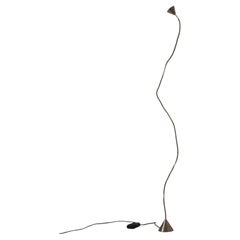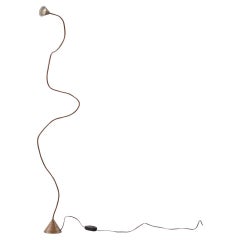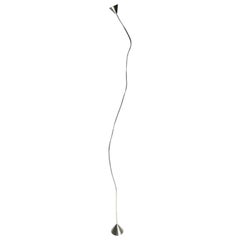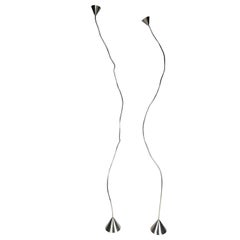Papiro Floor Lamp
Vintage 1980s Italian Mid-Century Modern Floor Lamps
Nickel
Vintage 1980s Italian Modern Floor Lamps
Metal, Copper
Recent Sales
Late 20th Century Minimalist Floor Lamps
Nickel
Late 20th Century Floor Lamps
Nickel
Late 20th Century Floor Lamps
Nickel
Late 20th Century Floor Lamps
Nickel
Late 20th Century Italian Mid-Century Modern Floor Lamps
Copper
Vintage 1980s Italian Post-Modern Floor Lamps
Nickel
1990s Italian Post-Modern Floor Lamps
Metal, Copper
Early 2000s Italian Modern Floor Lamps
Metal, Nickel
People Also Browsed
2010s American Modern Stools
Walnut
21st Century and Contemporary Mexican Mid-Century Modern Table Lamps
Wood, Fabric, Linen, Fiberglass
21st Century and Contemporary American Bohemian Chandeliers and Pendants
Brass
21st Century and Contemporary American Mid-Century Modern Wall Lights an...
Brass
2010s American Mid-Century Modern Wall Lights and Sconces
Brass, Bronze, Enamel, Nickel
21st Century and Contemporary Swedish Scandinavian Modern Wall Lights an...
Metal
21st Century and Contemporary American Scandinavian Modern Wall Lights a...
Copper
21st Century and Contemporary American Scandinavian Modern Wall Lights a...
Steel, Zinc
2010s American Modern Stools
Sheepskin, Wood, Oak
2010s British Scandinavian Modern Ottomans and Poufs
Sheepskin, Oak
21st Century and Contemporary American Scandinavian Modern Wall Lights a...
Copper
Vintage 1960s Italian Organic Modern Chandeliers and Pendants
Metal
21st Century and Contemporary American Scandinavian Modern Wall Lights a...
Brass, Nickel
Mid-20th Century Italian Mid-Century Modern Chandeliers and Pendants
Plastic
2010s American Mid-Century Modern Table Lamps
Brass
2010s South African Minimalist Night Stands
Burl, Poplar
Finding the Right Floor-lamps for You
The modern floor lamp is an evolution of torchères — tall floor candelabras that originated in France as a revolutionary development in lighting homes toward the end of the 17th century. Owing to the advent of electricity and the introduction of new materials as a part of lighting design, floor lamps have taken on new forms and configurations over the years.
In the early 1920s, Art Deco lighting artisans worked with dark woods and modern metals, introducing unique designs that still inspire the look of modern floor lamps developed by contemporary firms such as Luxxu.
Popular mid-century floor lamps include everything from the enchanting fixtures by the Italian lighting artisans at Stilnovo to the distinctly functional Grasshopper floor lamp created by Scandinavian design pioneer Greta Magnusson-Grossman to the Paracarro floor lamp by the Venetian master glass workers at Mazzega. Among the more celebrated names in mid-century lighting design are Milanese innovators Achille and Pier Giacomo Castiglioni, who, along with their eldest brother, Livio, worked for their own firm as architects and designers. While Livio departed the practice in 1952, Achille and Pier Giacomo would go on to design the Arco floor lamp, the Toio floor lamp and more for legendary lighting brands such as FLOS.
Today’s upscale interiors frequently integrate the otherworldly custom lighting solutions created by a wealth of contemporary firms and designers such as Spain’s Masquespacio, whose Wink floor lamps integrate gold as well as fabric fringes.
Visual artists and industrial designers have a penchant for floor lamps, possibly because they’re so often a clever marriage of design and the functions of lighting. A good floor lamp can change the mood of any room while adding a touch of elegance to your entire space. Find yours now on 1stDibs.



